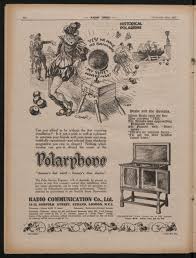Exploring the Impact of Radio Times on Media Culture

Introduction to Radio Times
Radio Times has long served as a vital source of information for television and radio enthusiasts in the UK. Founded in 1923, it remains an essential publication that provides comprehensive listings, reviews, and critical insights on the ever-evolving media landscape. With the rise of streaming services and changing viewing habits, Radio Times plays a crucial role in helping consumers navigate their entertainment choices.
Transitioning in a Digital Era
In recent years, Radio Times has embraced digital transformation, expanding its reach beyond the traditional print publication. With a robust online platform and a strong social media presence, it has adapted to the modern demand for instant information. The magazine’s website now features up-to-the-minute updates on programme schedules, associated articles, and podcasts, making it easy for users to find what they want to watch or listen to.
Engaging Content and Audience Interaction
One significant aspect of Radio Times is its ability to engage with its readers through various interactive formats. From polls about popular shows to exclusive interviews with leading figures in the television and radio industry, the publication continues to evolve. Recently, Radio Times initiated a series of webinars, allowing audiences to interact directly with experts who analyse television trends and audience viewing behaviors.
Significance for Viewers and Listeners
For many, Radio Times is more than just a guide; it acts as a purchasing influencer. The publication has a dependable reputation for reviewing television programmes and radio shows, offering readers guidance about what to watch or listen to next. As media choices become increasingly varied, many people still rely on Radio Times to highlight must-see TV and hidden gems.
Conclusion: The Future of Radio Times
As the media landscape continues to change, the relevance of Radio Times remains strong. With ongoing engagement strategies and digital advancements, it is well-positioned to adapt to future trends in entertainment consumption. Readers can continue to expect insightful reviews and valuable information that reflects the current entertainment zeitgeist. Overall, Radio Times stands as a testament to the enduring interest in broadcast media and its evolving narrative in a digital age.









